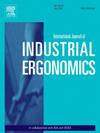Employees trust, perceived justice, on task performance: Mediating and moderating role of autonomy and organizational culture
Abstract
This study explores the impact of trust and perceived justice on task performance within UAE public sector organizations, emphasizing the mediating role of autonomy and the moderating effect of organizational culture. This research was driven by gaps in the current understanding of how individual perceptions of fairness and trust impact practical outcomes in the public sector. Through a survey of 273 public sector employees and structural equation modeling, this study demonstrates how trust and perceived justice significantly enhance task performance, with autonomy serving as a crucial mediator. Organizational culture also plays a complex role in moderating these effects, adding a cultural context layer to the theoretical framework grounded in social exchange theory. This study contributes to this field by providing empirical evidence supporting the enhancement of autonomy and justice perceptions to improve employee performance in the public sector. This contribution is particularly significant as it challenges traditional views on the trust-autonomy relationship and offers new insights into the role of organizational culture. By highlighting these dynamics, this study fills a crucial gap in the literature and also offers a model that can guide future research and practical applications in similar contexts. The findings underscore the necessity of fostering trust and perceived justice within organizations, recommending that leaders focus on enhancing autonomy and carefully consider the influence of organizational culture. This approach promises to improve task performance and employee satisfaction, thereby contributing to a more effective administration and service delivery in the public sector.

 求助内容:
求助内容: 应助结果提醒方式:
应助结果提醒方式:


